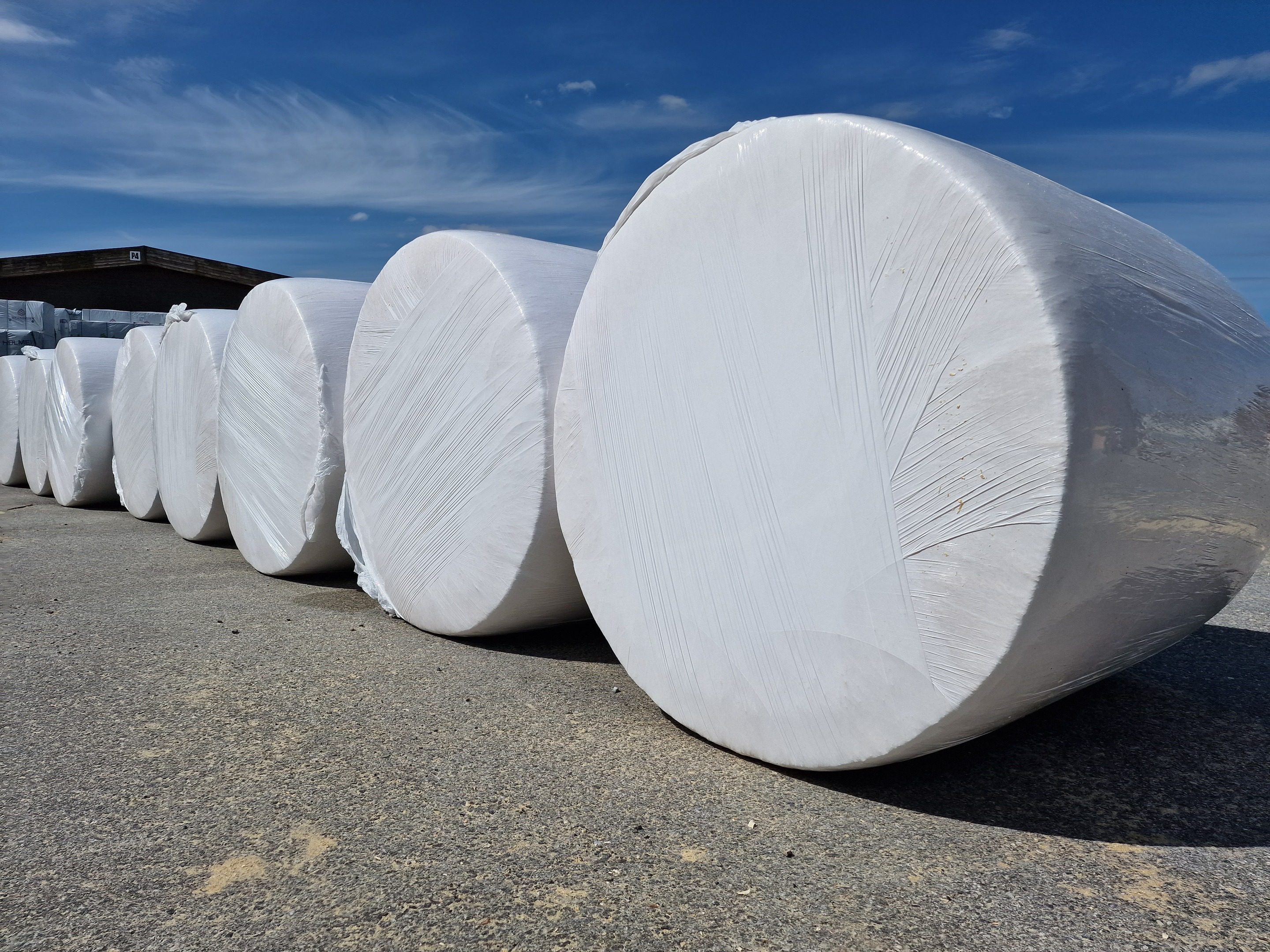After many months of not being able to meet with customers due to travel restrictions, the Orkel team was thrilled when a collaboration for a wood shavings demo came into play.
Waste Products from Lumber
The Orkel team is consistently searching for potential partners, which explains why Orkel representatives reached out to Talgø MøreTre, the department of production of wood materials at MøreRoyal, a company located in the mid-west of Norway.
In particular, it was the “waste products” from the production line of MøreTre that caught Orkel’s interest: Best described as wood shavings. Previously, Orkel has conducted significant testing concerning the ability to bale sawdust and wood waste, so naturally a more extensive mapping of the capability of baling different types of wood shavings was in place.
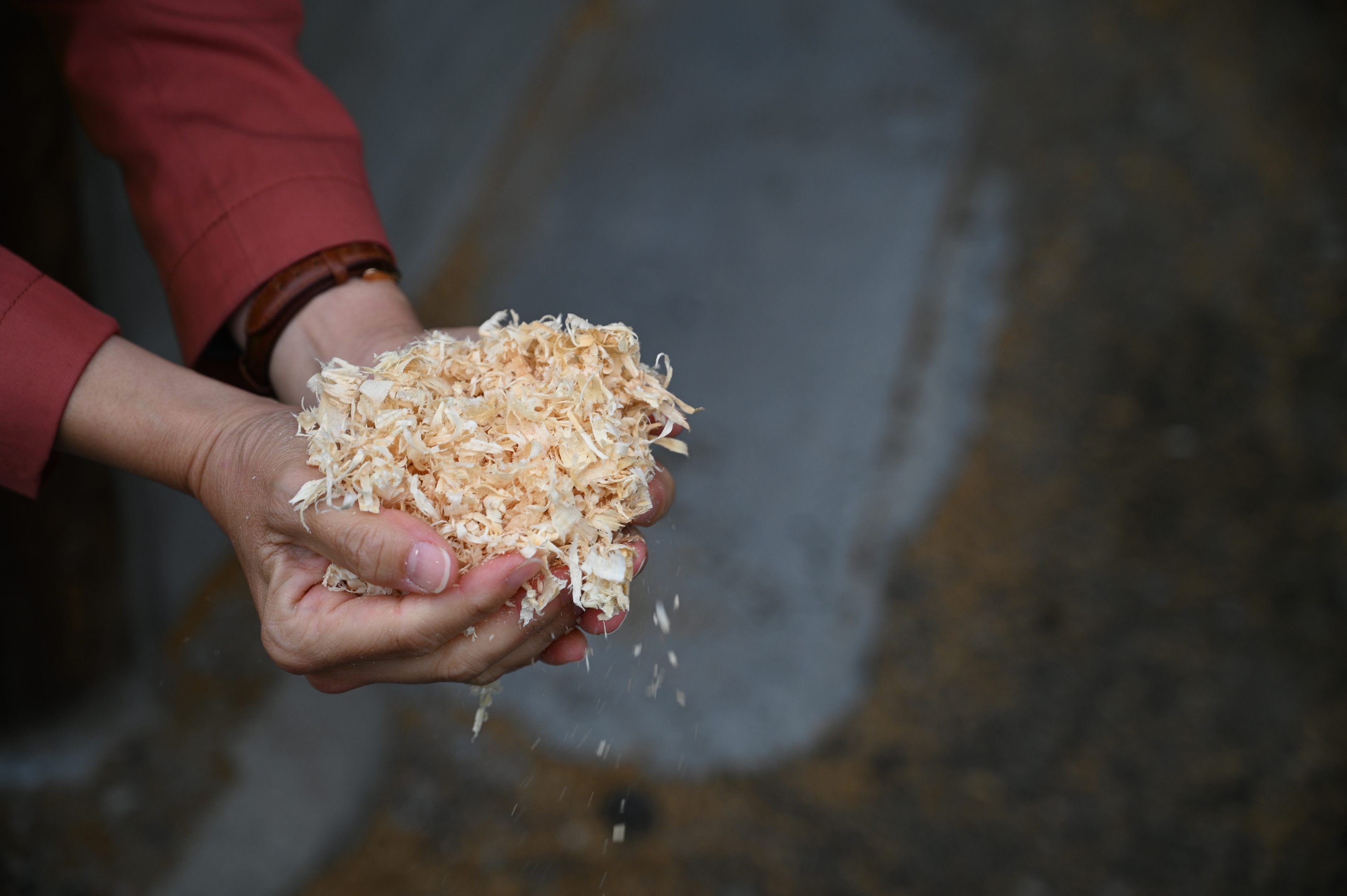
25,000 Cubic Metre of Surplus Material
Handling lumber and different wood materials result in significant amounts of surplus material. MøreTre estimates that 100,000 cubic metre of lumber passes through their production facilities annually, where 25% of the material, or 25,000 cubic metre of the initial lumber, is eventually left as wood shavings.
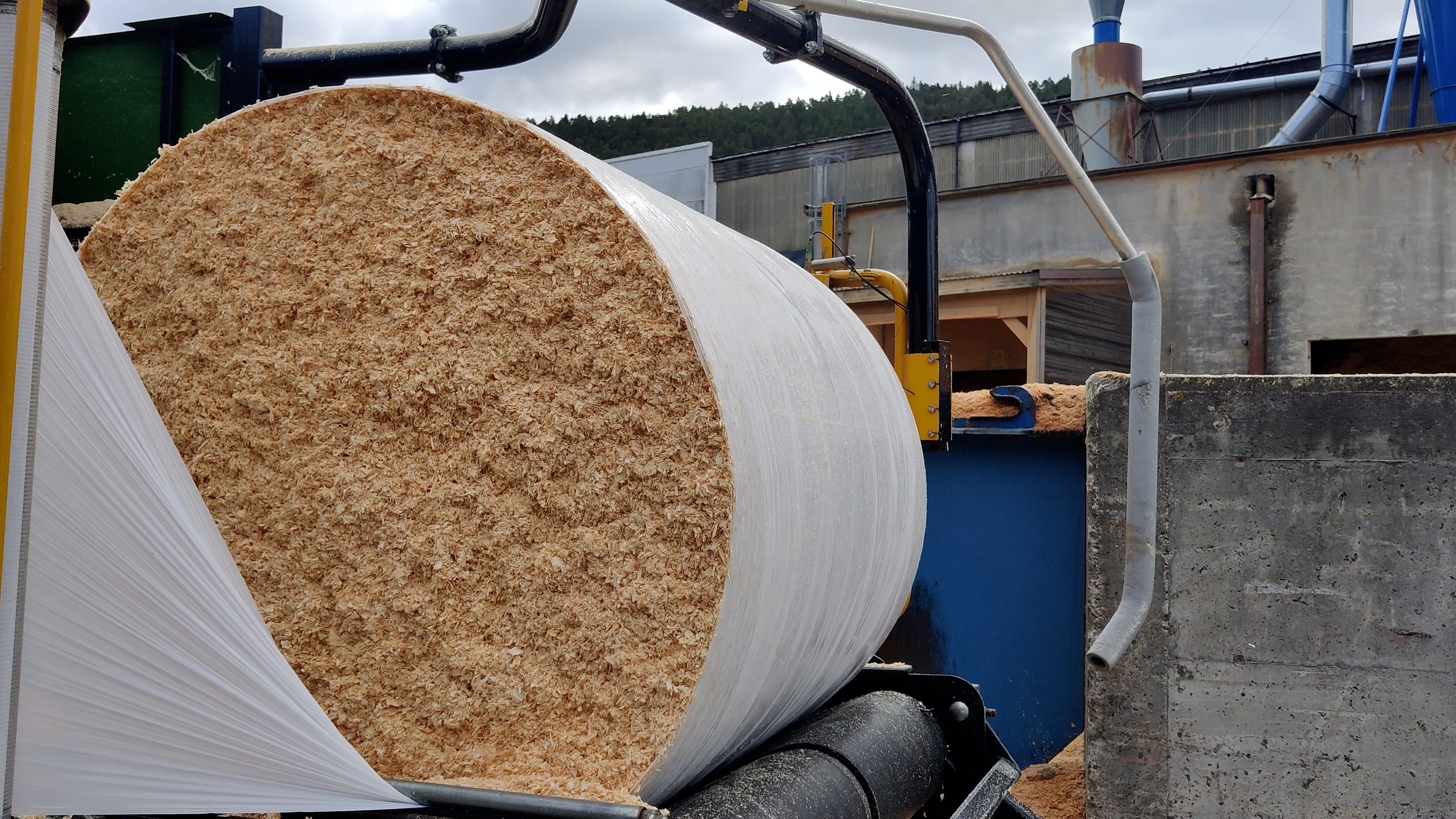
Looking for New Storage Methods
Luckily, the company identifies multiple usages for the surplus material, such as the production of chipboard, firelighters, or livestock bedding. However, most of these usages are directed by the seasons, where the spring and summer markets require less of the mentioned products.
Additionally, due to the material consistency and the potential fire hazard that the wood shavings represent, MøreTre was on the lookout for a more optimal storage method.
Saw Shavings
- 1/4 of the lumber is normally left as saw shavings
- A medium sized sawmill produce between 20,000 and 30,000 cubic metre of saw shavings each year*
- Often stored in bulk either inside or outside, or compacted into small square bales
- One of the most useful by-products in the world
- A popular product for livestock bedding
*based on examples from Norway
Could High-Density Baling be the Solution?
After uncovering the interest from both Orkel and MøreTre, as well as local farmers and contractors, a potential demo started taking form. And as the formalities was set in stone, a team of Orkel representatives travelled to Surnadal bringing our most popular model, the MP2000-X, along for a local demonstration of high-density baling of wood shavings.
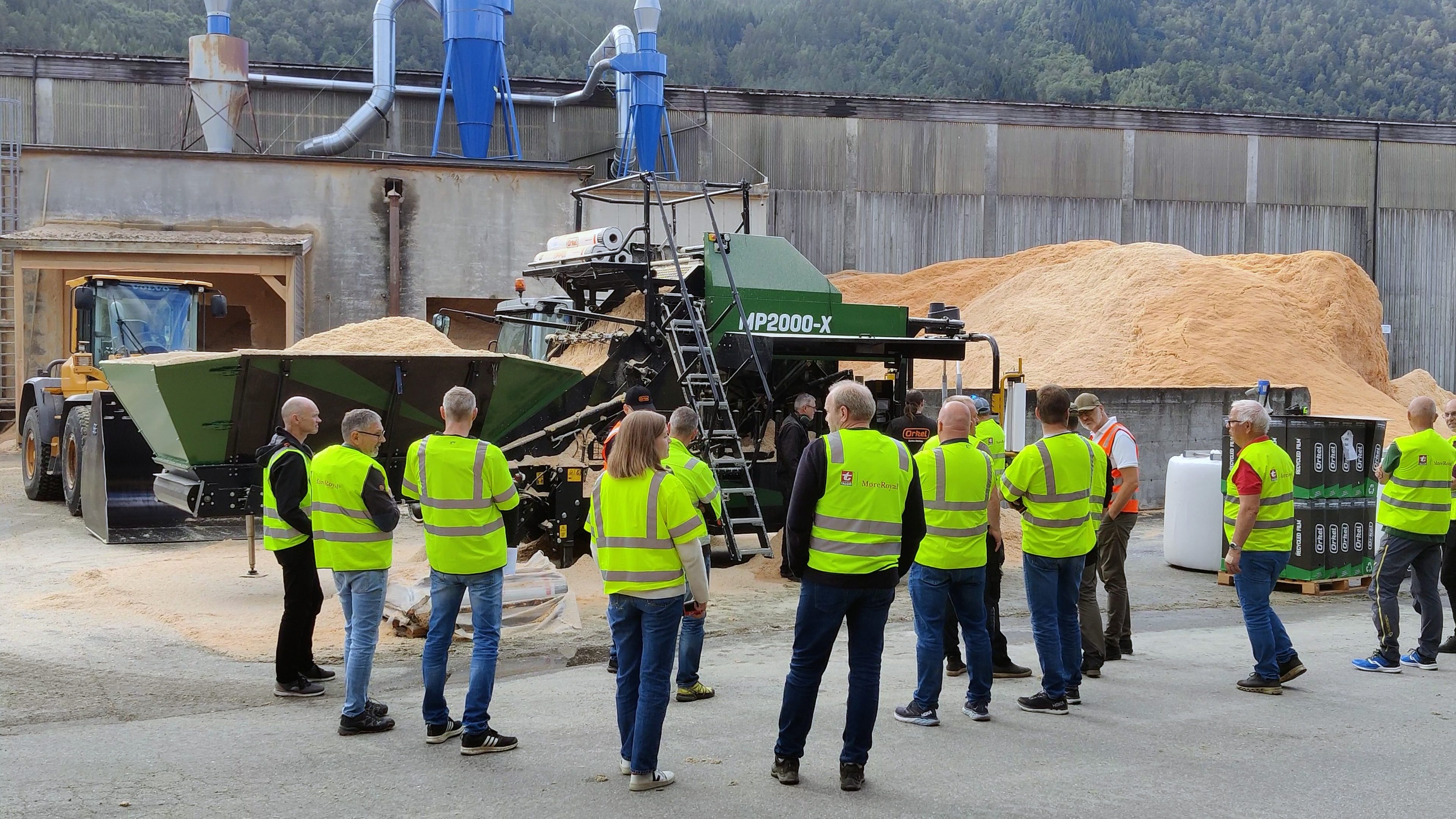
The Benefits of Baling Sawdust
The Orkel team, together with the Talgø representatives, were thrilled with the success of the demonstration. Multiple high-density bales were made using the MP2000-X where the bales ranged from 250-300 kilograms, and after speaking with local farmers and potential customers, it was apparent that they found the demonstration insightful and fun!
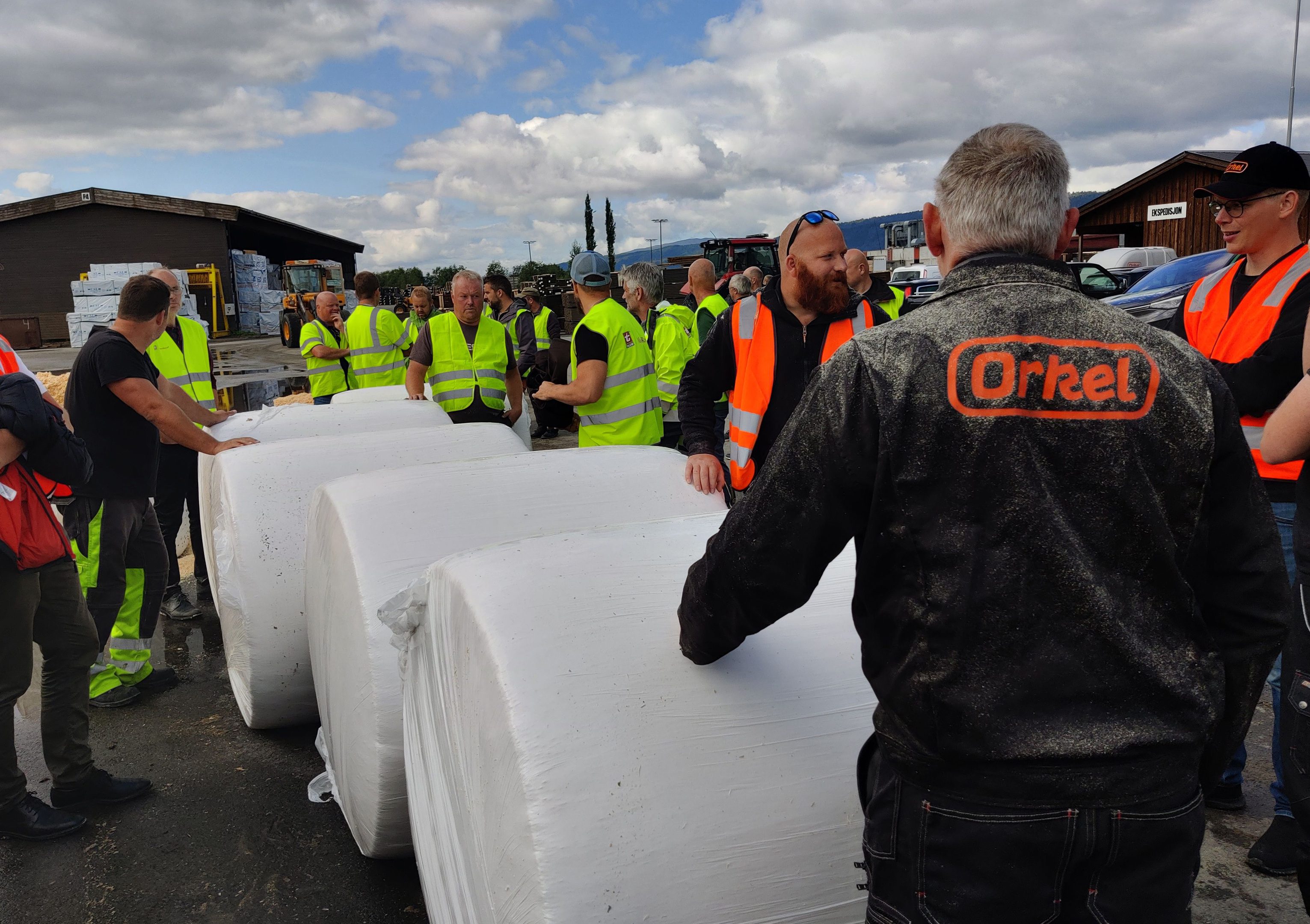
Additionally, baling the sawdust offer a number of benefits to the material:
- Simplified material handling
- Greater market access
- Verstile storage opportunities
- Reduced fire hazard
- Simplified logistics from bale weight measurements
- Increased profitability from reducing flyaway and informative logistics
Coming down from the high of a successful baling demo, the Orkel team would like to thank Talgø MøreTre for the great collaboration, and everyone who found the time to participate in the saw dust demo. May there be more to come!
